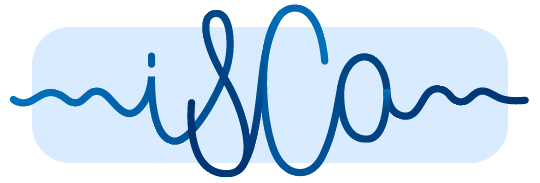- Home
- Activities
- Special Interest Groups

Special Interest Groups
What is an ISCA SIG?
The field of speech communication is growing rapidly and specific areas in speech communication now consist of significant groups of interested individuals. It is also noticed that with the increasing interest in speech communication in general, there is a wish to get organized on a specific area, which may be related to a certain topic or a certain language. Finally, specific parts of the membership of ISCA, notably students, may wish to organize themselves.
For all these purposes ISCA has the possibility to start ISCA Special Interest Groups (ISCA-SIGs). The function of a Special Interest Group will be to encourage interest and activity in (specific areas within) the broad field of the Association - including links with related areas - by means such as (specialist) workshops, special conference sessions, dedicated web pages and other schemes that might be proposed.
The ISCA Board therefore invites any group that has an interest in becoming an ISCA SIG to submit a written proposal to the ISCA Secretariat. The proposal should satisfy relevant articles from the by-laws or provide sufficient assurance that this will likely be the case within one year. The proposal should (a) state explicitly why it would be desirable for ISCA to support the existence of the proposed SIG, (b) list interested people (preferably already 25), which need not all to be ISCA members, (c) identify a liaison representative and (d) provide a draft constitution.
The ISCA Board will approve a SIG which satisfies ISCA's requirement for an initial term of one year, during which it is expected that the SIG would take steps to organize itself effectively. To support the start of a SIG, ISCA will provide a grant of 1000 Euro to be used for promotional activities. After one year, the ISCA board will make a final decision on the continuation of the SIG.
The ISCA Board believes that SIGs will strengthen the Association and will serve the interests of our members. The Board is looking forward to new proposals.
Topic SIGs
- Speech Synthesis - SynSig
- Audio Visual Speech - AVISA
- Under-resourced Languages - SIGUL
- SPeaker and Language Characterization - SpLC
- Speech Prosody - SProSIG
- Discourse and Dialogue - SIGdial
- Speech and Language Technology in Education - SLaTE
- Machine Learning - SIGML
- Speech and Language Processing for Assistive Technologies - SLPAT
- The History of Speech Communication Sciences - SIG-HIST
- Child Computer Interaction - SIG-CHILD
- Robust Speech Processing - SIG-RoSP
- Security and Privacy in Speech Communication - SIG-SPSC
- Spoken Language Translation - SIG-SLT
Language SIGs
- Chinese Spoken Language Processing - SIG-CSLP
- Association Francophone de la Communication Parlée - AFCP
- Associazione Italiana di Scienze della Voce - AISV
- Iberian Languages - SIG-IL
- Indian Language Speech Processing - SIG-ILSP
- Russian Speech Analysis - SIGRU
Old SIGs
- Speech And Language Technology for Minority Languages - SALTMIL
- Speech and Language in Multimedia - SLIM
- Test new SIG. Webpage here.
SIG reports
- Topic-SIG Annual Meeting 2012
- Topic-SIG Annual Meeting 2018
- Topic-SIG Annual Meeting 2019
- Topic-SIG Annual Meeting 2023
- Topic-SIG Annual Meeting 2024
- Topic-SIG Annual Meeting 2025
- Lang-SIG Annual Meeting 2021
- Lang-SIG Annual Meeting 2022
- Lang-SIG Annual Meeting 2023
- Lang-SIG Annual Meeting 2024
- Lang-SIG Annual Meeting 2025
How to propose a new ISCA SIG?
A group of researchers interested in becoming an ISCA SIG should submit a written proposal to the ISCA Secretariat for consideration by the ISCA Board. The proposal should satisfy relevant articles from the by-laws on SIGs, or provide sufficient assurance that this will likely be the case within one year. The proposal should
- state explicitly why it would be desirable for ISCA to support the existence of the proposed SIG;
- list interested people (preferably already 25), which need not all to be ISCA members;
- identify a liaison representative;
- provide a draft constitution (for reference, see model constitution).
